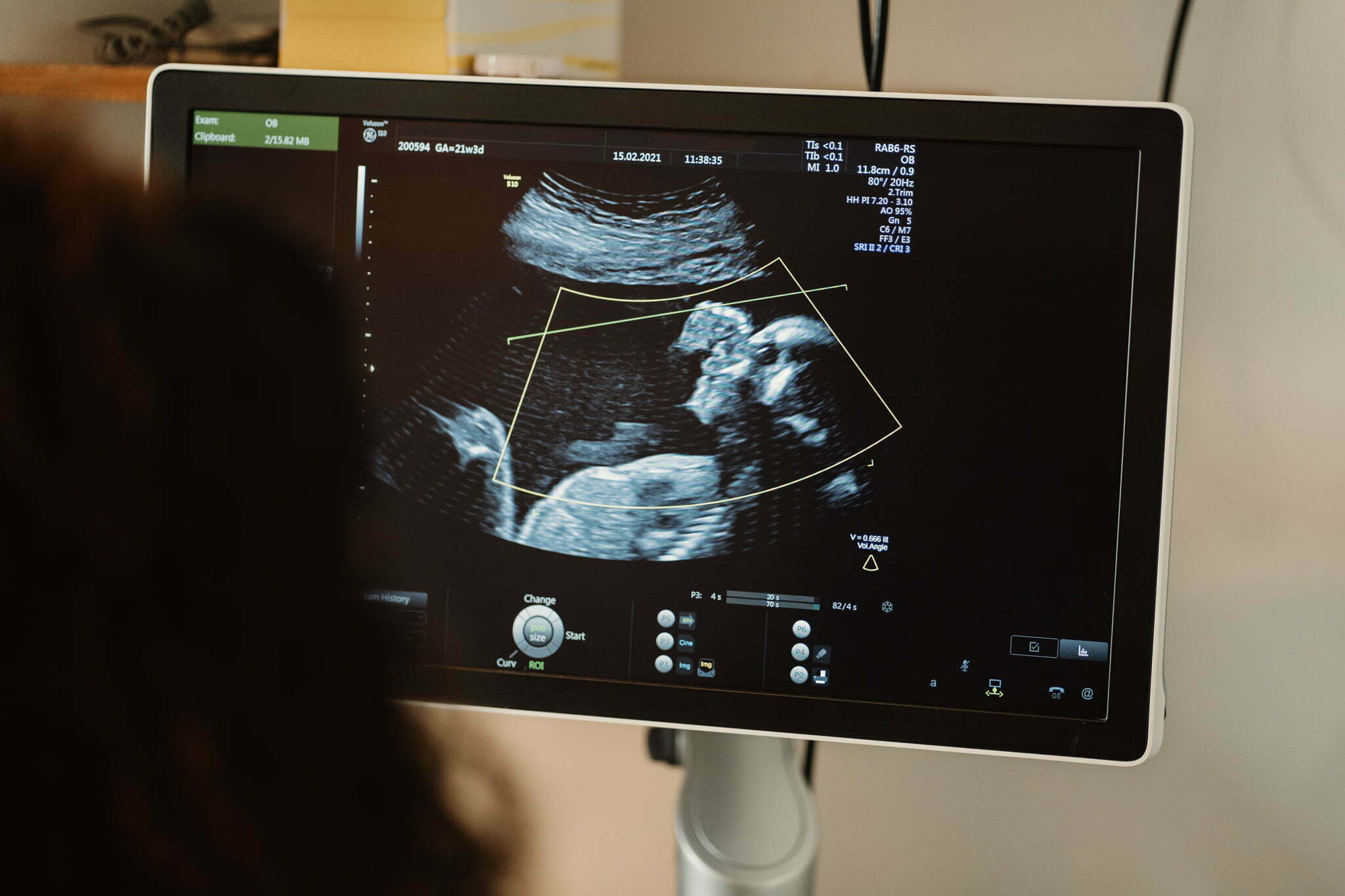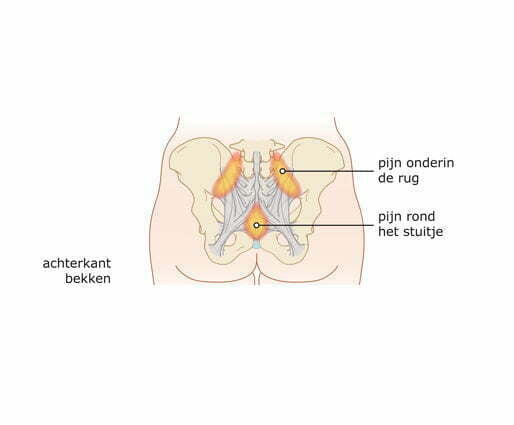Every pregnant woman has different needs when it comes to preparing for childbirth. Whether you prefer individual or group sessions, alone or with your partner, brief or comprehensive courses, there's something for everyone. Fortunately, there are various options such as hypnobirthing, prenatal yoga, hypnotherapy, haptonomy, Mensendieck, mindfulness courses, and many more. For a complete overview, you can view the brochure folder in the waiting rooms of our locations. Don't hesitate to ask a midwife for specific tips once you've decided what you want.
Pelvic and back pain
Under the influence of the pregnancy hormone progesterone, the cartilage and joints in the pelvis soften. This softening is beneficial during childbirth as it allows the pelvis to expand sufficiently for the baby's birth. However, if the softening is excessive, the pelvic joints may shift relative to each other, requiring the muscles and ligaments around the pelvis to work extra hard to maintain stability. This can lead to a painful sensation around the pubic bone and/or lower back, which may radiate to the hips, buttocks, and thighs.
To minimize discomfort, it helps to keep your pelvic muscles strong. This can be achieved through exercise or muscle-strengthening exercises (provided by a chiropractor, physiotherapist, or Mensendieck therapist, for example). Try to move your pelvis symmetrically as much as possible and consider taking a preventive class to prevent issues.


















